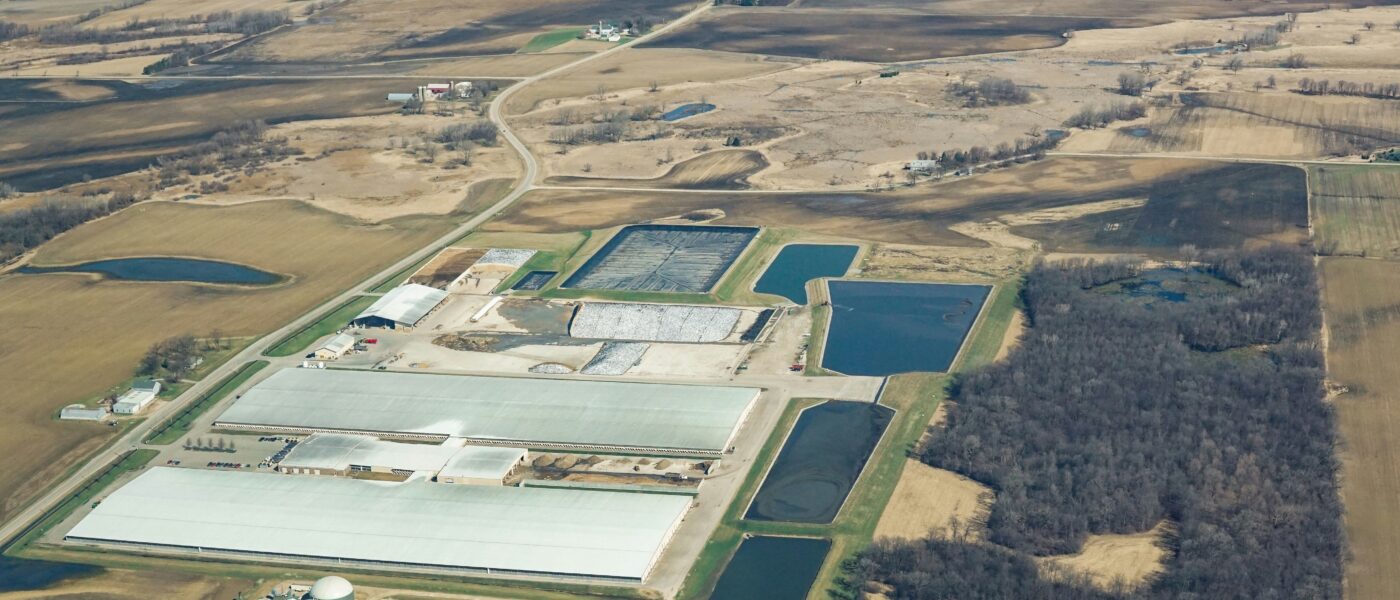Should factory farms (also known as concentrated animal feeding operations, or “CAFOs”) be held to the same standard as other polluters? Farm Aid and our partners at Food & Water Watch think so. Last month, Farm Aid signed on to an “amicus brief” (a statement in support of a legal case meaning “friend of the court”), arguing that the lack of meaningful regulation of CAFOs’ pollution benefits industrial agricultural interests while hurting rural communities and the ability of smaller farms to compete.
At the core of this brief is the idea that large factory farms operate in a fundamentally different way than small, independently owned family farms and should be held to the different standards when it comes to pollution. In other words, while a small, pasture-based dairy shouldn’t have to adhere to strict Environmental Protection Agency (EPA) regulations, a 2,000-cow factory farm, which produces huge amounts of waste, should.
Under the Clean Water Act, the law protecting our nation’s waters and regulating their pollution, CAFOs are defined as “point sources” of pollution, a technical term that identifies sources from which pollutants are discharged. According to EPA, CAFOs pollute more than 14,000 miles of rivers and streams as well as 90,000 acres of lakes and ponds nationwide (1). Despite being huge polluters, fewer than 30% of all CAFOs are actually permitted and regulated due to EPA’s weak Clean Water Act program for CAFOs (2).
The amicus brief is only a small part of a years-long fight between Food & Water Watch and EPA over how factory farm pollution should be regulated. This legal case goes back to 2017, when Food & Water watch filed a petition urging EPA to strengthen the rules governing factory farms under the Clean Water Act. The petition highlighted loopholes in the Clean Water Act that allow CAFOs to evade permitting requirements and asked EPA to improve its monitoring, prohibit practices that harm water quality, and strengthen pollution standards.
EPA is legally required to respond to petitions “within a reasonable time,” but it still had not updated regulations or responded as of October 2022, nearly six years later. Consequently, Food & Water Watch filed a lawsuit with the Ninth Circuit Court of Appeals, arguing EPA had delayed for an unreasonably long amount of time, prolonging the public’s exposure to dangerous pollution from factory farms in the meantime.
In August 2023, EPA finally answered Food & Water Watch’s petition. It denied the request for regulatory reform, instead choosing to conduct a study and form an advisory committee which would make recommendations, a process that could take years without any guarantee of strengthening the agency’s fundamentally inadequate regulations.
That brings us to today. In response to EPA’s denial of their request, Food & Water Watch sued the agency for its failure to act. Farm Aid and six other organizations filed the amicus brief in support of Food & Water Watch’s claim that EPA is not meeting its obligations under federal law; its plan to merely conduct a study, rather than regulate is unlawful; and EPA’s refusal to narrow its agricultural stormwater exemption for factory farm pollution is also unlawful.
This case could force EPA to finally change the way it regulates CAFOs and hold the industrial livestock industry accountable for its well-documented pollution. Legal actions like this case are one way that advocacy organizations can bring about much-needed change in our food and farming system. Farm Aid is proud to support Food & Water Watch’s case against EPA.
Sources:
- EPA. [Data table]. Water quality assessment and TMDL information, national summary tables and charts. Available at https://ofmpub.epa.gov/waters10/attains_index.home
- EPA. NPDES CAFO Permitting Status Report: National Summary, Endyear 2022. Accessed at https://www.epa.gov/system/files/documents/2023-05/CAFO-Status-Report-2022.pdf



